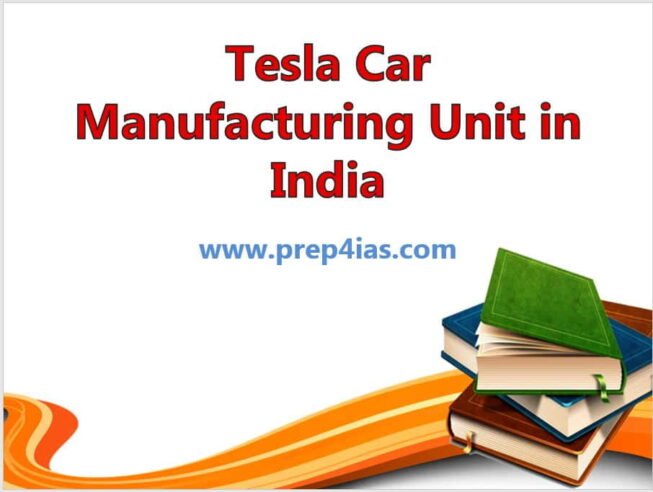In this article, we will discuss about the Tesla plan of Opening Electric Car Manufacturing unit in India. The electric vehicle market in India appears to be gaining momentum. This is further intensified with the announcement of Tesla opening its Electric Car manufacturing Unit in Karnataka. With the Launch of Government FAME Scheme in 2015, Companies already started making Electric Scooters and Bikes to give a push to the use Renewal Energy as much as possible inline to the government policies.
What is FAME
FAME is also Known as Faster Adoption and Manufacturing of Hybrid and Electric Vehicles. It is a Scheme started by Government of India on 1st April, 2015 to promote the usage of Electric Vehicles in the Country. Under Phase I of this Scheme which lasted from 2015 to 2019, Government allocated Rs895 Crore for faster adoption of Electric Vehicles. Then the Phase II began in 2019 and is planned to be completed in 2022. More about FAME on PIB.

Tesla to Open Electric Car Manufacturing Unit in India
Also Read: Best Analysis of 3 New Agricultural Farm Bills 2020 Introduced by Govt of India
US Electric Car Giant Tesla finally made an entry to India and registered itself in Bangalore. Karnataka Chief Minister B.S. Yediyurappa made this announcement.
About the Tesla Company
Tesla is an American Electric Vehicle Company founded in 2003 by a Group of Engineers. It is currently based on Palo Alto, California. Tesla's current products includes Electric Car, Battery Energy Storage, Solar Panels and Solar roof tiles. Tesla is known to revolutionize the manufacturing of Electric Vehicles in Global Market by building a compelling car that would create a demand for Electric Vehicles instead of building a relatively affordable car which it could mass produce.
Is Karnataka Suitable for Tesla
Karnataka was the first state in India which brought the Policy about Electric Vehicle in 2017. State government intends to make Bengaluru the electric vehicle capital of India. Later on, 11 more states which includes Gujarat, Maharashtra, Andhra Pradesh, Tamil Nadu unveiled their policies on Electric Vehicle.
Challenges for Electric Vehicle in India
- Poor Infrastructure
- Lack of Skilled Labour
- High Component Costs
- Lack of Technology
- High Charging Time
- Lack of Awareness
- Inadequate Electric Supply
- High Price of Electric Vehicles(For ex: Electric Car of Tesla)
- Volatility in Automobile Industries
- No Long Term Help or Assurance from Government
Future of Electric Vehicle in India
- As per UN Sustainable Development Goals, Government of India has set an ambitious target of installing 175 GW of renewable energy by 2022. These include 100 GW from solar power, 10 GW from bio-energy and 5 GW from hydropower, and 60 GW from wind.
- At the UN Climate Summit, PM Narendra Modi announced to further increase the target of installing renewable energy to 475 GW by 2030 from 175 GW by 2022.
- In 2013, Government had launched National Electric Mobility Mission Plan to enhance national fuel security by providing affordable and environmentally friendly transportation such as Electric Car and Hybrid Vehicles.
- Under the NEMMP 2020, there is an ambitious target to achieve 6-7 million sales of hybrid and electric vehicles by the year 2020.
- Under FAME Phase II which started from 2019 with an outlay of Rs10,000 crores for next 3 years, the main goal is to encourage adoption of electric and hybrid vehicle by offering upfront incentive on purchase.
- To attract investment into Charging Infrastructure, Ministry of Power has allowed Sale of Electricity as 'service' for charging of Electric Vehicles.
- Ministry of Road Transport & Highways has notified that there will be an exemption of permit in case for battery operated vehicles.
- Under the new GST Regime, Government has put the Electric Vehicles in the lower bracket of 12% with no cess in comparison to Conventional Vehicles which have been kept under 28% slab with Cess up to 22%.

